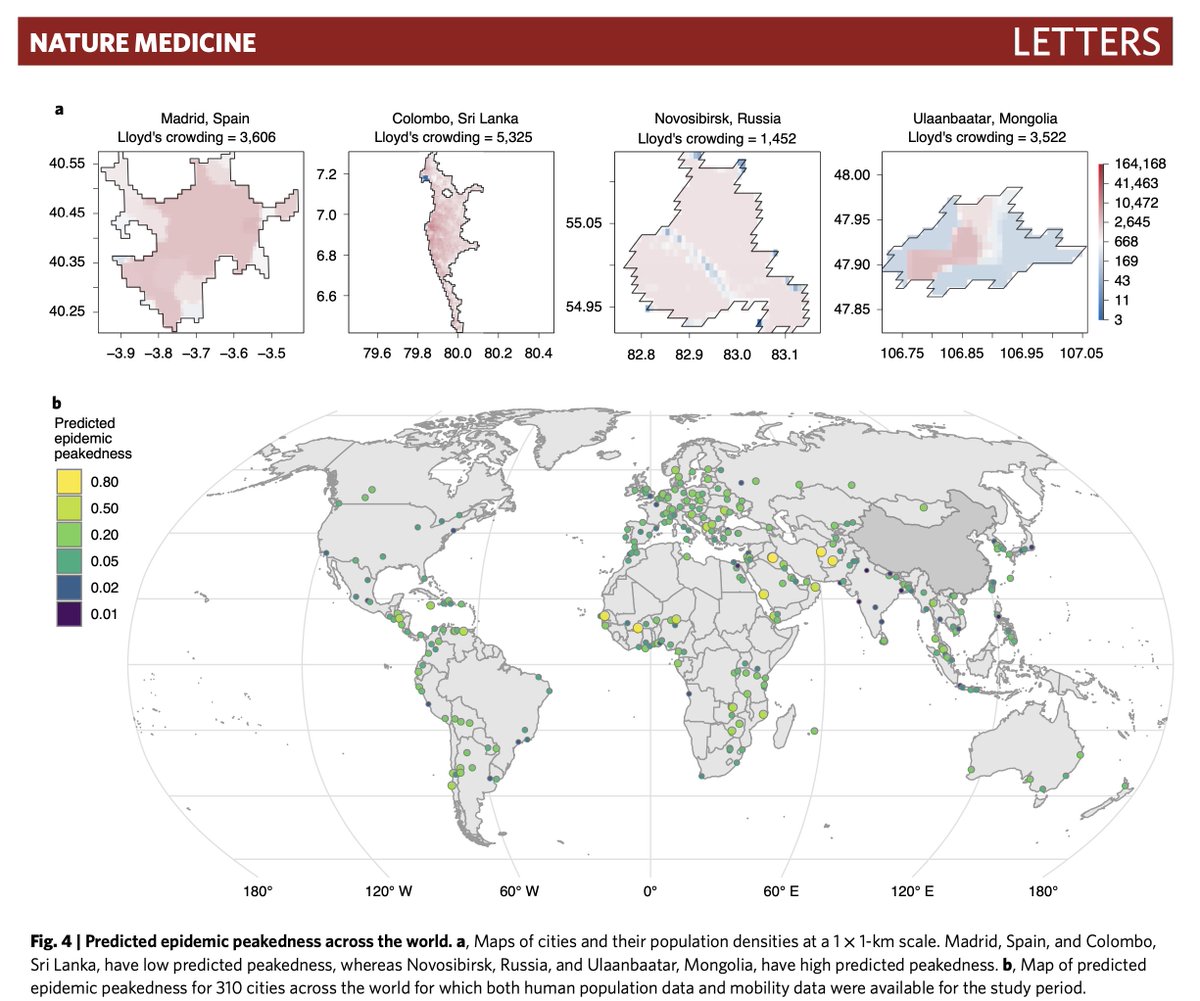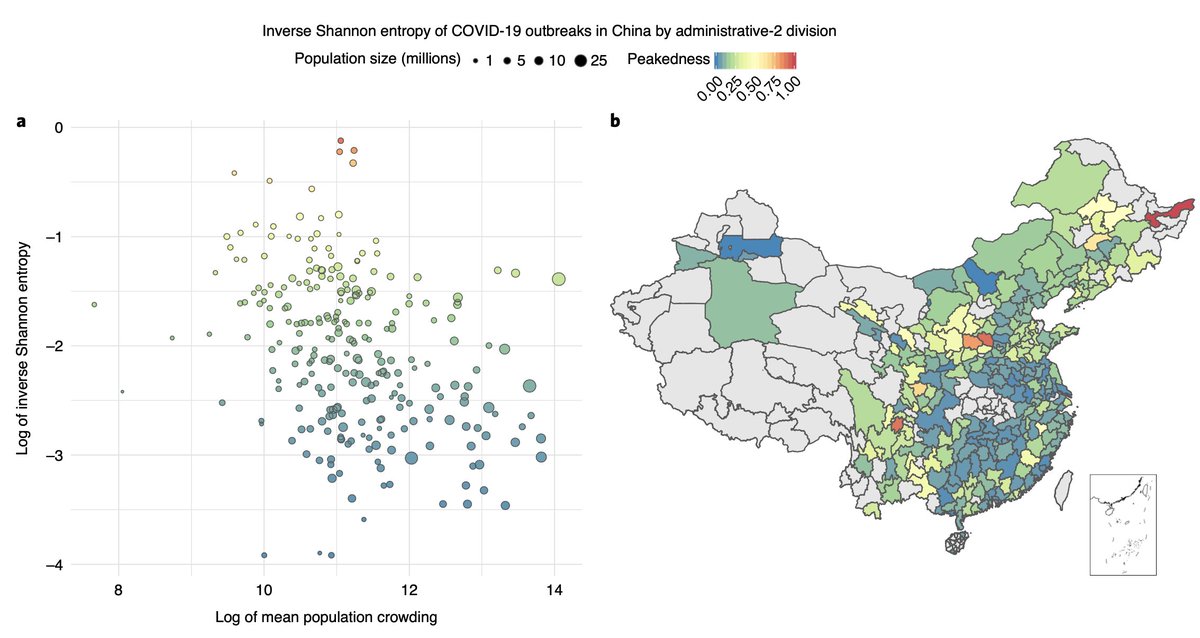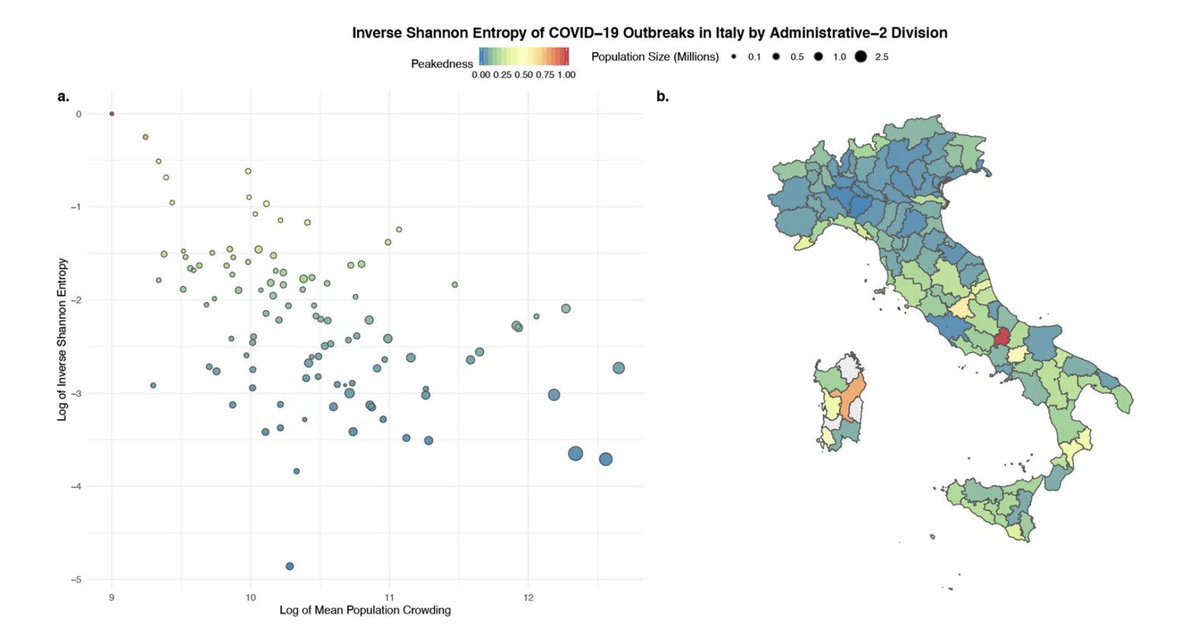
While we all anxiously await news from NV, GA, & PA, our (@LHDnets, @BMAlthouse, & @all_are) paper on pandemic risk assessment that goes *beyond R0* is out @RSocPublishing Interface. 1/10 royalsocietypublishing.org/doi/10.1098/rs… 

Building from foundational work in math. epi. and network science, we show how super-spreading creates havoc for pandemic risk predictions based on R0 alone and then derive a method for correcting the predictions. 2/10
https://twitter.com/svscarpino/status/1253112811569451008?s=20
This paper includes what I think is the most intuitive explanation for how higher moments in the distribution of secondary infections affects epidemic risk that I've read (@LHDnets & @all_are wrote the following lines). 3/10
"The alternating sign of contribution from high-order moments in equation (3.3) can be interpreted as follows. A disease needs a high average number of secondary infections (high κ1 = R0) to spread, but," 4/10
"given that average, a disease with small variance in secondary infections will spread much more reliably and be less likely to stochastically die out." 5/10
"Given a variance, a disease with high skewness (i.e. with positive deviation contributing to most of the variance) will be more stable than a disease with negative skewness (i.e. with most deviations being towards small secondary infections)." 6/10
"Given a skewness, a disease will be more stable if it has frequent small positive deviations rather than infrequent large deviations—hence a smaller kurtosis—as stochastic die out could easily occur before any of those large infrequent deviations occur." 7/10
Thinking about the implications of this work led us to write a second paper, on how de-coupling the risk of infection from transmission breaks the friendship paradox, which most (non-mass-action) herd immunity thresholds rely on. 8/10
https://twitter.com/svscarpino/status/1264934828631261190?s=20
And, as we point out in the pre-print, these results highlight the *critical* importance of backwards case investigation and cluster busting for controlling diseases like #COVID19. arxiv.org/abs/2005.11283 9/10
Lastly, we further extended this line of reasoning to derive thresholds for controlling diseases w/ NPIs, which accounts for super-spreading and stochasticity, and arrive at a number between 10 - 15 secondary infections for #COVID19. 10/10
https://twitter.com/LHDnets/status/1263432599873236992?s=20
• • •
Missing some Tweet in this thread? You can try to
force a refresh






